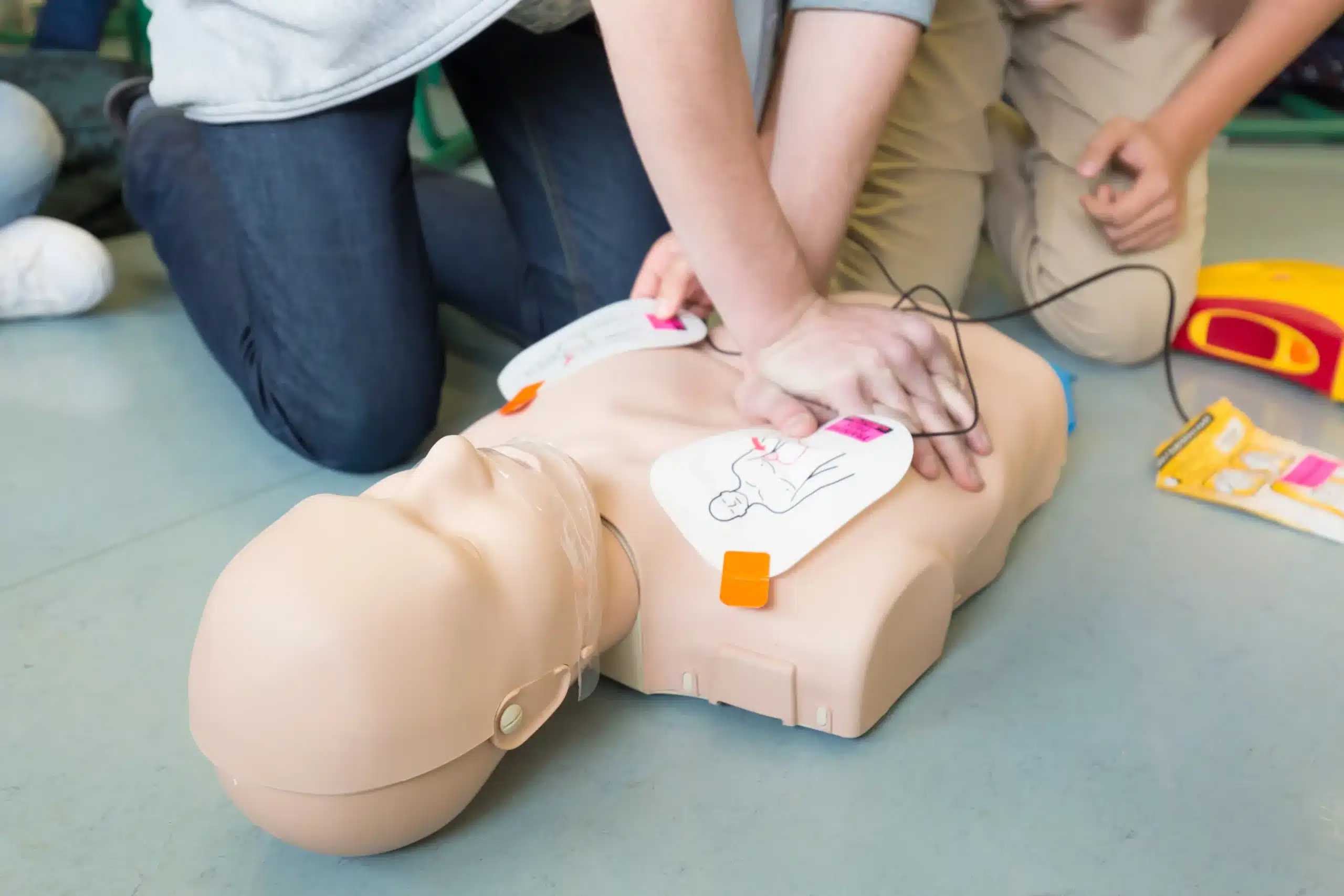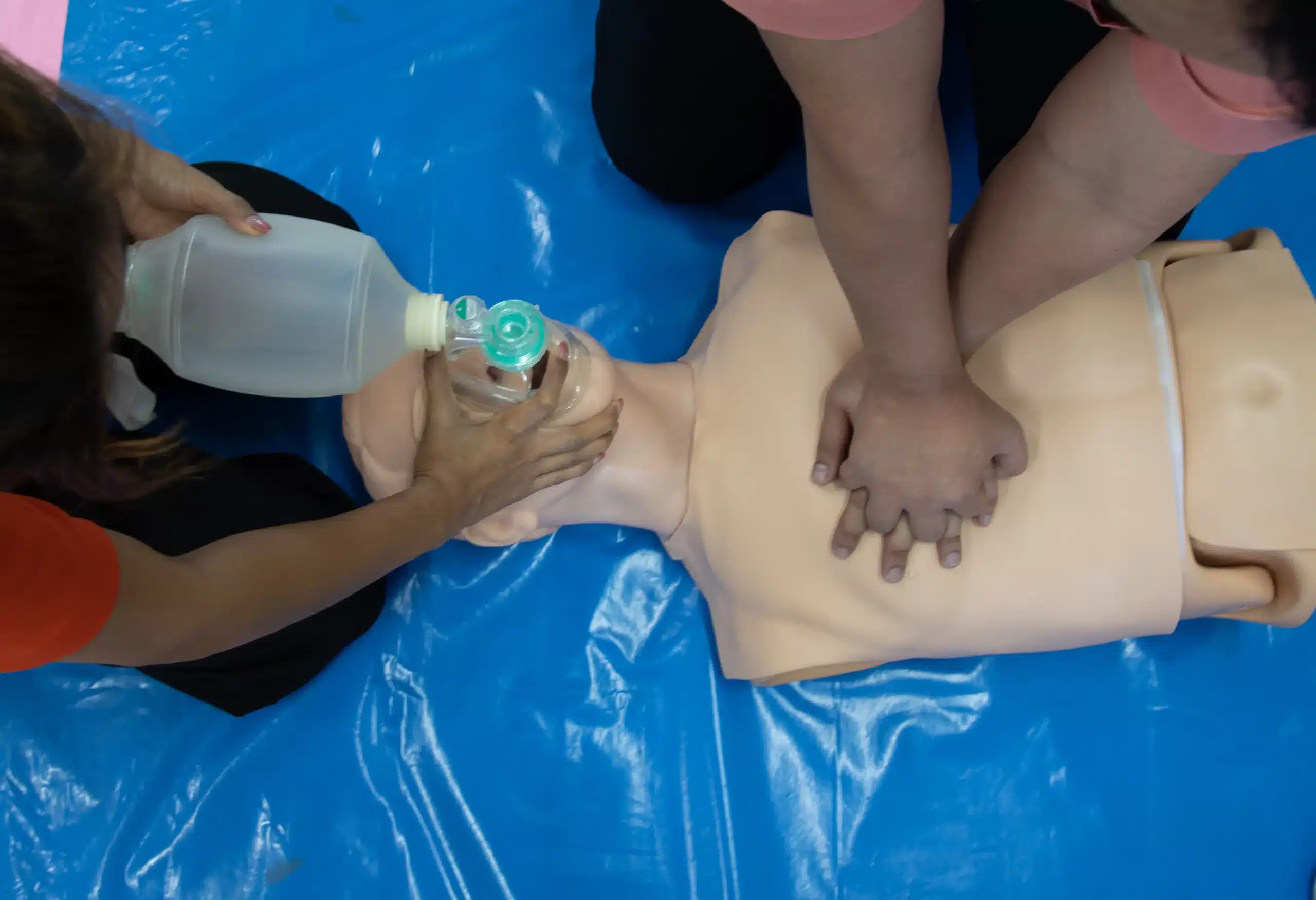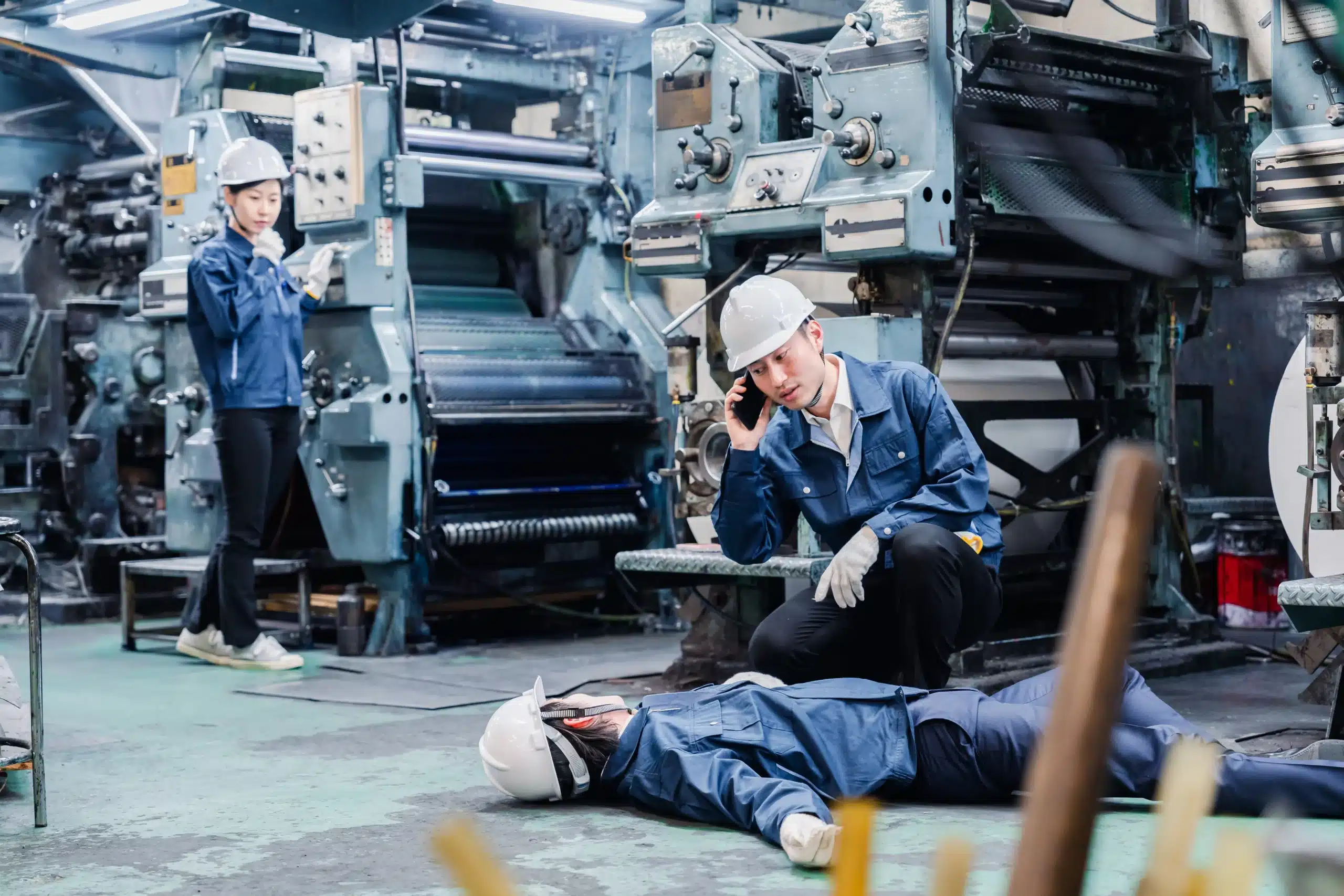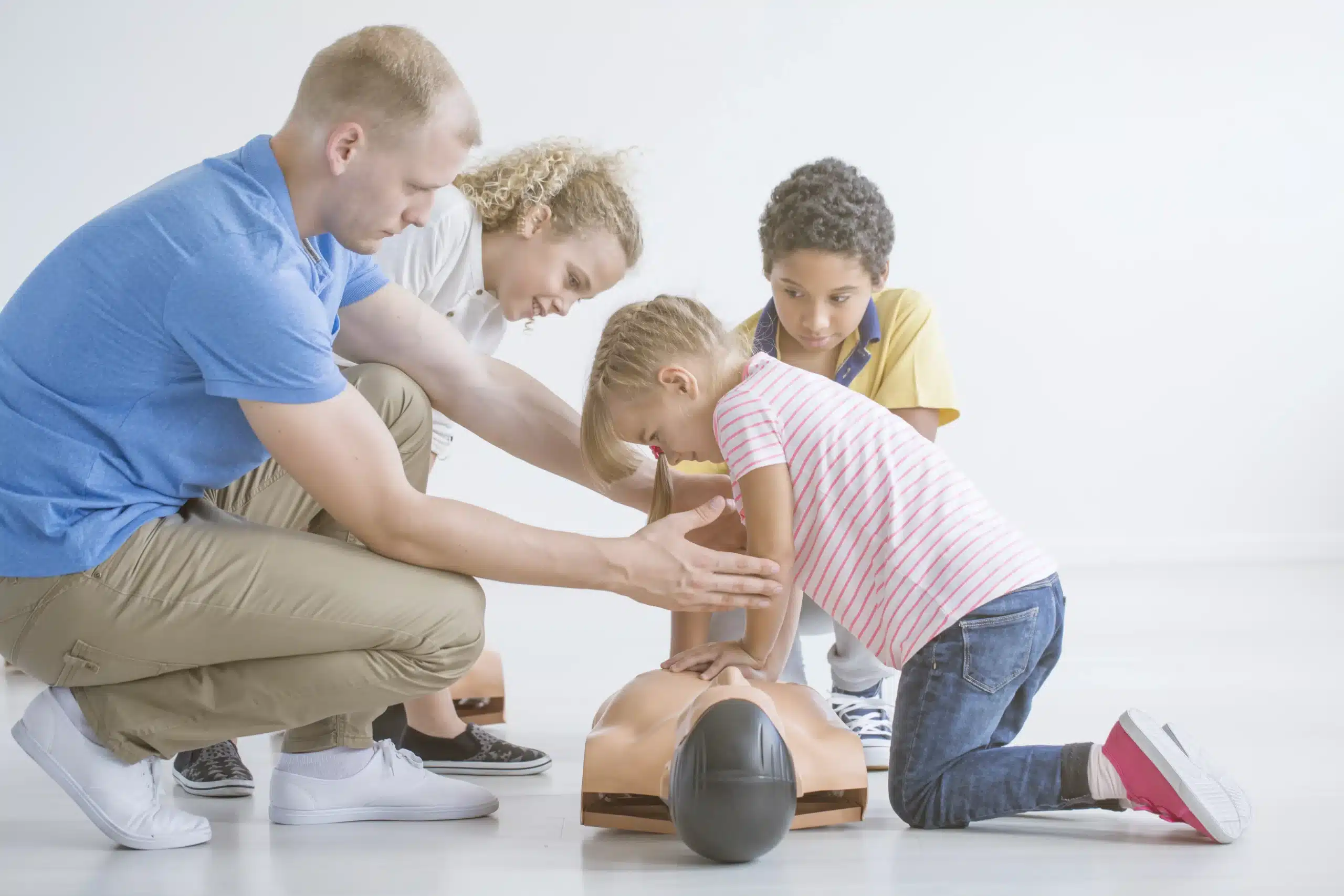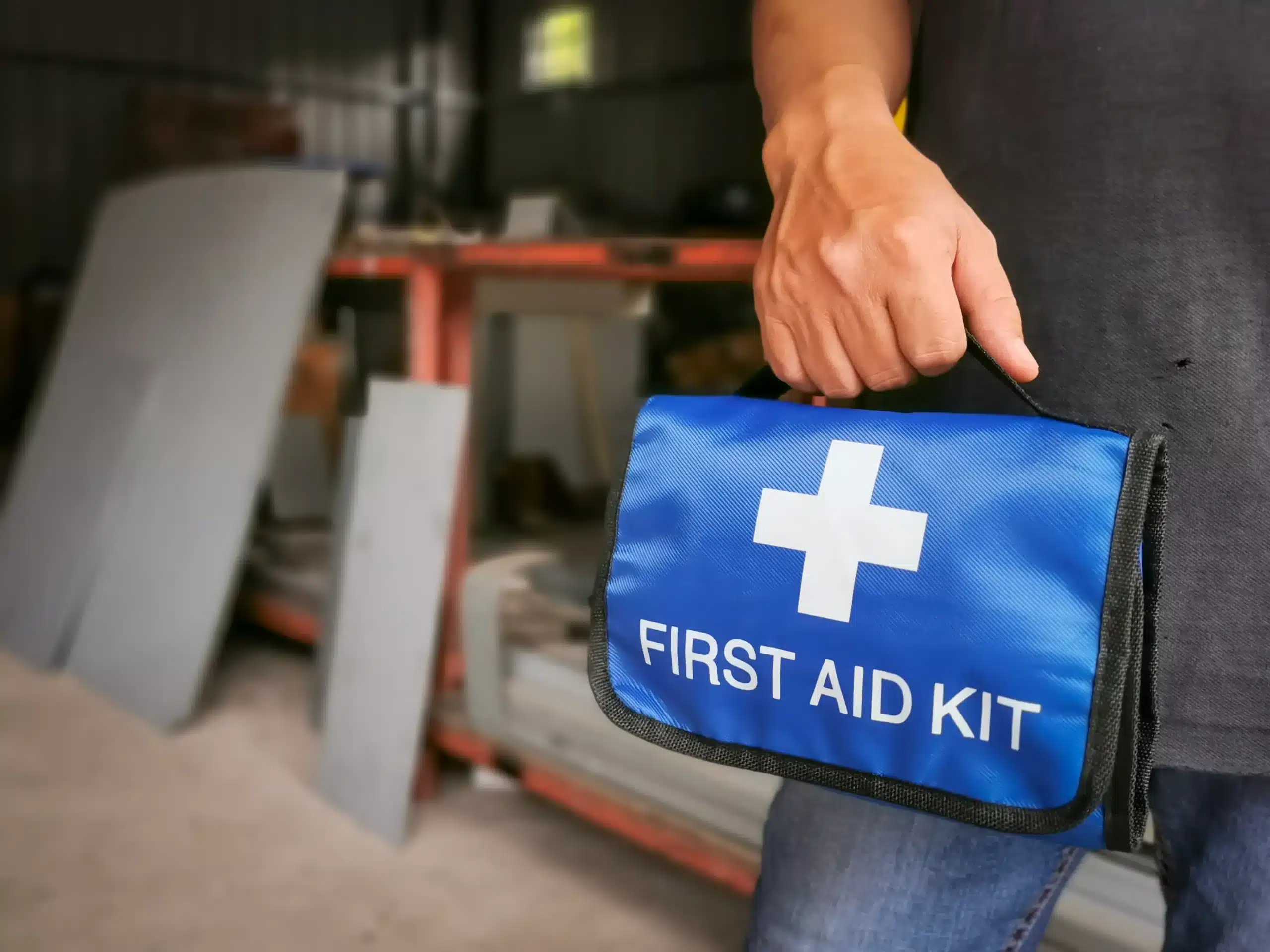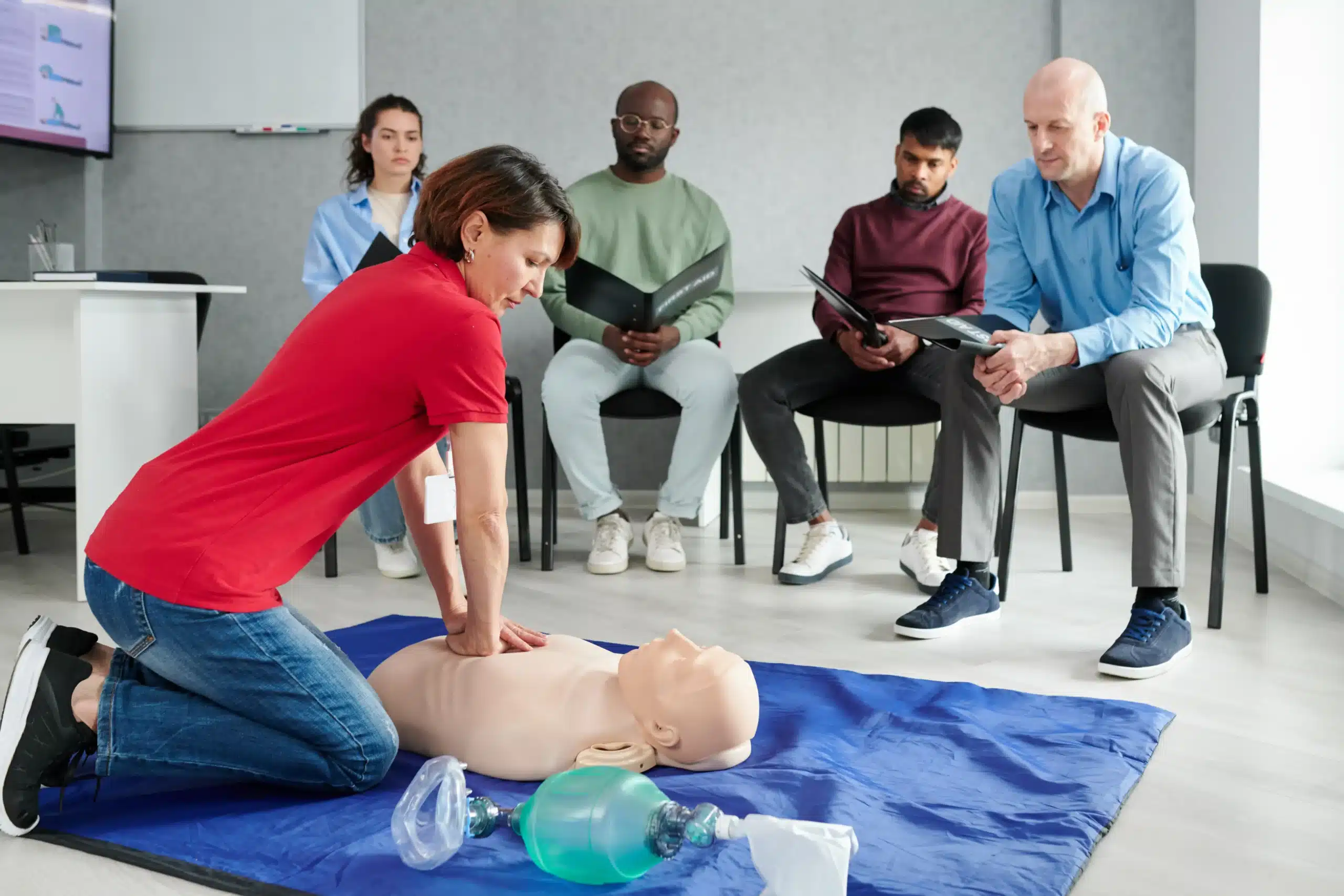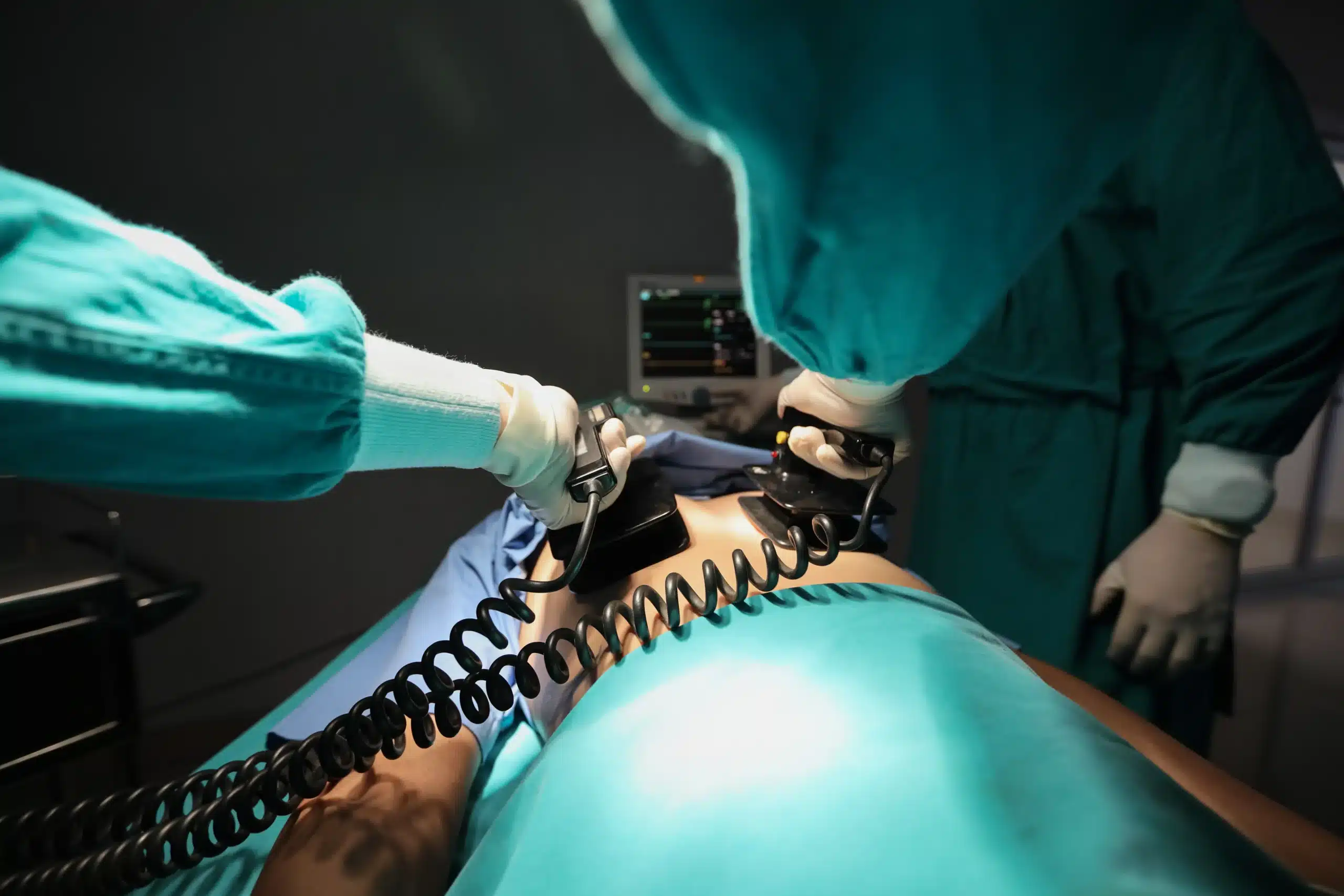CPR certification is a powerful skill that can make a profound impact in critical situations. This guide provides a clear roadmap for anyone seeking “CPR certification near me,” offering valuable insights into the different types of CPR courses, training formats, and specialized certifications. Whether you’re a healthcare professional, a concerned parent, or simply someone who wants to be prepared, we’ll help you find the right CPR training to meet your specific needs. We’ll also discuss the importance of choosing a reputable training provider and offer tips for evaluating local training centers. Let’s equip you with the confidence and skills to respond effectively in emergencies.
Key Takeaways
- Choose the right CPR course: Whether you need basic CPR training or an advanced certification like BLS, ACLS, or PALS, consider your career goals and personal needs when selecting a course. If you’re unsure which certification is right for you, contact a training provider for guidance.
- Find reputable training near you: Look for CPR classes offered by trusted organizations like the American Heart Association or the American Red Cross. Consider factors like class size, instructor experience, and online reviews when evaluating local training centers.
- CPR certification is an investment: While costs vary, CPR training provides valuable skills and the confidence to respond effectively in emergencies. Explore options like group discounts or community programs to make training more affordable. Remember that certification is typically valid for two years and requires renewal.
What are My CPR Certification Options?
Choosing the right CPR certification can feel overwhelming with so many options. This section breaks down the different types of CPR courses, training formats, and specialized certifications to help you find the perfect fit.
CPR Course Types
First, let’s clarify the different types of CPR courses available. Basic CPR training teaches the essentials of CPR and AED use for adults, children, and infants. More advanced courses, like Basic Life Support (BLS certification), are designed for healthcare providers and cover a broader range of life-saving techniques. Advanced Cardiovascular Life Support (ACLS certification) goes even further, focusing on the treatment of adult victims of cardiac arrest and other cardiovascular emergencies. Pediatric Advanced Life Support (PALS) focuses on pediatric emergencies. It’s important to choose a course that aligns with your specific needs and career goals. If you’re unsure, contacting Safety Training Seminars directly can provide helpful guidance.
Online vs. In-Person Training
Deciding between online and in-person CPR training depends on your learning style and schedule. Online courses offer flexibility, allowing you to learn at your own pace from anywhere. However, in-person classes provide hands-on practice and direct interaction with an instructor. Many organizations, including Safety Training Seminars, offer blended learning options that combine online learning with in-person skills sessions. This approach can be a great way to gain the knowledge and confidence you need to perform CPR effectively.
Specialized Certifications by Profession
Certain professions require specific CPR certifications. Healthcare professionals, for example, typically need BLS, ACLS, or PALS certification. Other fields, such as education, childcare, and fitness, may require basic CPR and first aid training. Safety Training Seminars offers a range of courses tailored to various professions, ensuring you receive the right credentials for your career. They also offer group discounts which can be a great option for workplaces looking to certify multiple employees. Check with your employer or professional organization to determine what CPR certification is required for your field. For healthcare professionals needing to renew their certifications, Safety Training Seminars also offers the RQI program. Remember, investing in the right CPR certification not only meets professional requirements but also equips you with the skills to potentially save a life. And with Safety Training Seminars’ low price guarantee, you can be confident you’re getting quality training at an affordable price.
How Do I Find Reputable CPR Training Near Me?
Finding the right CPR class can feel overwhelming, but it doesn’t have to be. Start by understanding which organizations offer credible training and certification. Then, evaluate local training centers based on your specific needs.
Trusted CPR Training Organizations
Several established organizations provide high-quality CPR training programs. Familiarizing yourself with these can help you narrow your search.
American Red Cross
The American Red Cross is a well-known provider of CPR and first aid classes. Their certifications are widely accepted and generally valid for two years. Check their website to find a class near you.
American Heart Association
The American Heart Association (AHA) is another highly respected organization offering CPR and other life-saving certifications like Basic Life Support (BLS), Advanced Cardiovascular Life Support (ACLS), and Pediatric Advanced Life Support (PALS). AHA certifications are often preferred by healthcare employers due to their comprehensive and rigorous standards.
National Safety Council
The National Safety Council also provides CPR training programs. Look for training centers partnered with the NSC for nationally recognized certification. Safety Training Seminars, for example, offers a range of AHA-certified courses, including CPR, BLS, ACLS, and PALS. You can find more information on our website.
Local Community Colleges
Your local community college is a great resource for CPR training. They often offer affordable classes that are convenient for busy schedules. Many CPR training providers, including Safety Training Seminars, also offer group discounts, which can make community college classes even more cost-effective.
Evaluating Local Training Centers
Once you’ve identified some potential training organizations, it’s time to evaluate local training centers. Consider factors like class size, instructor experience, and the overall learning environment. Smaller classes often allow for more personalized instruction and feedback. Look for instructors with extensive experience and current certifications. Safety Training Seminars offers a low-price guarantee and a range of courses, including BLS, ACLS, PALS, and First Aid/CPR. We pride ourselves on small class sizes and experienced instructors.
Checking Credentials and Reviews
Before committing to a CPR class, verify the training center’s credentials and check for reviews. Ensure the center is certified by a reputable organization and that the instructors have the necessary qualifications. Online reviews can offer valuable insights from past students. Reading these reviews can give you a better sense of what to expect and help you choose the best training center for your needs. Our RQI program also ensures our instructors stay up-to-date with the latest guidelines.
CPR Certification: Costs & Course Details
CPR certification costs, course lengths, and renewal periods vary depending on the type of certification and training provider. Understanding these factors will help you find a course that fits your needs and budget. Let’s break down the key details.
Average CPR Course Costs
CPR course costs depend on several factors, including the level of certification, the training provider, and whether you choose online or in-person training. For example, the American Heart Association (AHA) Heartsaver® CPR/AED Blended Learning course, which combines online learning with a 4-hour in-person skills session, is often priced around $65 in Sunnyvale. Safety Training Seminars is committed to offering the lowest prices in Santa Clara County for CPR certification courses.
Course Length & Content
Course length and content vary based on the type of CPR certification you pursue. Basic CPR and First Aid courses typically take about four hours. Safety Training Seminars offers a range of AHA-certified courses, including CPR, Basic Life Support (BLS), Advanced Cardiovascular Life Support (ACLS), and Pediatric Advanced Life Support (PALS). More advanced certifications like ACLS and PALS require more comprehensive training and may take longer to complete.
Certification Validity & Renewal
Most CPR certifications, including those from the American Heart Association, are valid for two years. After completing your CPR course with Safety Training Seminars, you’ll receive an AHA certification card valid for two years. It’s essential to renew your certification before it expires to maintain your skills and credentials. Check with your employer or certifying organization for specific renewal requirements. Safety Training Seminars also offers the RQI program for healthcare professionals seeking a more flexible renewal option.
Discounts & Financial Aid
Many CPR training providers offer discounts for group registrations, making it a cost-effective option for workplaces or community groups. Safety Training Seminars offers group discounts, so be sure to inquire about these options when registering. While financial aid for CPR certification is less common, some organizations may offer scholarships or reduced fees for eligible individuals. Contact your local training center or community organizations to explore potential financial assistance programs.
Which CPR Certification is Right for Me?
Choosing the right CPR certification involves understanding your needs, any workplace requirements, and the specifics of each course. Let’s break down how to find the perfect fit.
Assess Your Needs
First, think about why you want CPR certification. Is it a job requirement, or are you getting certified for personal knowledge and peace of mind? Do you need basic CPR training, or are you a healthcare provider requiring a more advanced certification? Sunnyvale offers various CPR and first aid courses, including online and in-person options, so you can find one that fits your schedule and learning style. Consider factors like your current knowledge level, comfort with hands-on training, and available time for classes.
Workplace Requirements vs. Personal Goals
If you need CPR certification for your job, check with your employer about their specific requirements. Some employers require certification from a particular organization like the AHA or the American Red Cross, while others accept certifications from either. This is crucial because acceptance varies. If your workplace doesn’t require a specific certification, consider your personal goals. Do you want a comprehensive understanding of CPR, or do you need a basic certification? Think about situations where you might need to use CPR and choose a course that aligns with those scenarios.
Comparing Courses
Safety Training Seminars offers a range of AHA-certified courses, including CPR, BLS, ACLS, and PALS. Each course covers different material and is designed for specific needs. For example, BLS is geared towards healthcare providers, while Heartsaver courses are suitable for the general public. Course formats also vary. Some courses, like the AHA Heartsaver® CPR/AED Blended Learning course, combine online learning with in-person skills sessions. In-person CPR training is valuable because it allows for hands-on practice and feedback from certified instructors. This is essential for building confidence and ensuring you can perform CPR effectively in a real-life emergency. Consider your learning style and schedule when choosing between online, blended, and in-person options.
How Do I Get CPR Certified?
Getting CPR certified is easier than you think. With a little research and planning, you can find the perfect course to fit your needs and schedule. Here’s a step-by-step guide to help you through the process:
Find CPR Training Near You
Start by searching online for “CPR training near me.” Look for classes in your area offered by reputable organizations like the American Heart Association or the American Red Cross. Safety Training Seminars offers a range of AHA-certified courses right here in Sunnyvale, covering everything from basic CPR to Advanced Cardiovascular Life Support (ACLS). We also offer convenient online options, so you can learn at your own pace. Consider factors like location, schedule, and course content when making your decision.
Contact Local Healthcare Facilities
Hospitals, clinics, and community centers often host CPR training sessions. Reach out to facilities in your area to inquire about upcoming courses. Many providers, including Safety Training Seminars, offer group discounts, which can be a great option if you’re signing up with friends, family, or coworkers. This can also be a good way to connect with other professionals in the healthcare field.
Community CPR Training Resources
Check with your local fire department, YMCA, or community organizations for CPR training opportunities. These resources often provide affordable or even free courses to residents. Supporting inclusive community CPR programs ensures that everyone has access to these lifesaving skills. These programs can be especially valuable for those who might not otherwise have access to training.
Scheduling & Enrollment
Once you’ve found a course that works for you, the enrollment process is usually straightforward. Most providers allow you to register online. Safety Training Seminars makes it easy to sign up for classes directly through our website. You’ll typically receive confirmation and course details once you’ve completed registration. Be sure to check for any prerequisites or required materials before your class.
What to Expect During Training
CPR training combines classroom instruction with hands-on practice. You’ll learn the essential techniques for performing CPR on adults, children, and infants. Expect to practice on mannequins and receive feedback from certified instructors. After successfully completing your course with Safety Training Seminars, you’ll receive your American Heart Association certification card, valid for two years. This nationally recognized certification demonstrates your readiness to respond to emergencies. The skills and confidence you gain could make a real difference in someone’s life.
Related Articles
- CPR Certification in San Jose: A Practical Guide – Sunnyvale CPR Classes
- CPR Certification in Santa Clara: Your Guide – Sunnyvale CPR Classes
- Online CPR Classes in San Jose: Find the Right One for You – Sunnyvale CPR Classes
- CPR Classes in San Jose: Find the Right Course for You – Sunnyvale CPR Classes
- Why CPR is Crucial in Healthcare
Frequently Asked Questions
How much does CPR certification cost?
CPR certification costs vary based on the course type and training provider. Basic CPR courses typically range from $65 to $90, while more advanced certifications like BLS, ACLS, and PALS are more expensive. Look for training centers, like Safety Training Seminars, that offer competitive pricing and discounts.
What’s the difference between CPR and BLS?
CPR focuses on immediate life-saving techniques for anyone, while BLS (Basic Life Support) is more advanced and designed for healthcare providers. BLS covers a broader range of skills, including team dynamics and the use of advanced airway equipment.
How long does CPR certification last?
Most CPR certifications are valid for two years. It’s important to renew your certification to maintain your skills and stay up-to-date with the latest guidelines.
What if my workplace requires a specific type of CPR certification?
Always check with your employer to confirm their specific requirements for CPR certification. Some employers may require certification from a particular organization like the AHA or the Red Cross, or a specific level of training like BLS for healthcare professionals.
What should I look for in a CPR training provider?
Look for providers offering AHA or Red Cross certified courses, experienced instructors, small class sizes, and positive reviews. Consider factors like location, schedule, and course format (online, blended, or in-person) to find a course that fits your needs. A low price guarantee is another great feature to look for.
